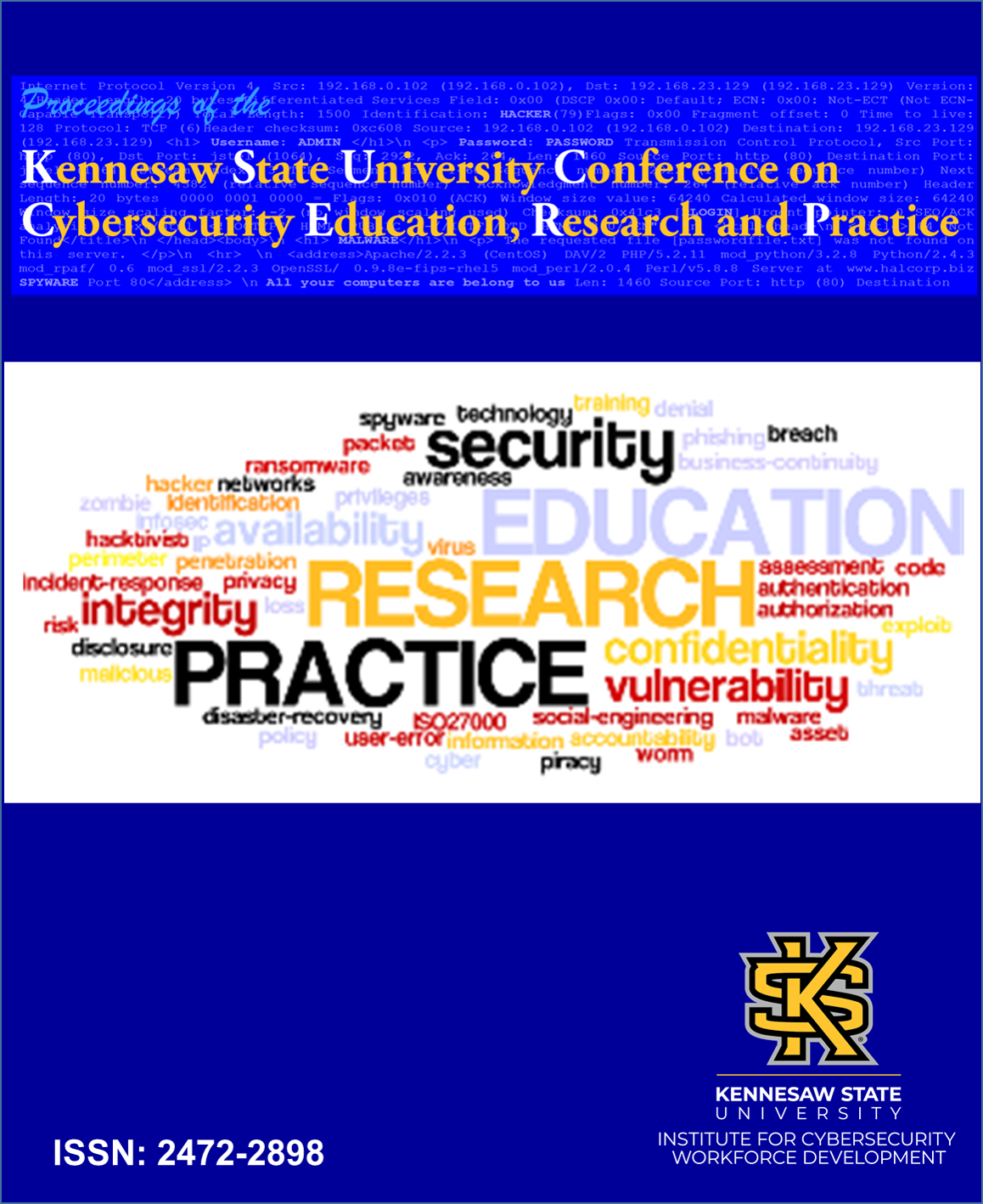Start Date
October 2018
End Date
October 2018
Location
KC 462
Abstract
Wireless access points are an effective solution for building scalable, flexible, mobile networks. The problem with these access points is often the lack of security. Users regularly connect to wireless access points without thinking about whether they are genuine or malicious. Moreover, users are not aware of the types of attacks that can come from “rogue” access points set up by attackers and what information can be captured by them. Attackers use this advantage to gain access to users’ confidential information. The objective of this study is to examine the effectiveness of the WiFi Pineapple NANO used as a rogue access point (RAP) in tricking users to connect to it. As part of the preliminary study, a brief survey was provided to users who connected to the Pineapple to evaluate the reasons why users connect to RAPs. The result of the cybersecurity pilot study indicated that lack of awareness played an important role. Specifically, users unknowingly connect to rogue wireless access points that put at risk not only their devices, but the whole network. The information collected in this research could be used to better educate users on identifying possible RAPs and the dangers of connecting to them.
Included in
Information Security Commons, Management Information Systems Commons, Technology and Innovation Commons
Hijacking Wireless Communications using WiFi Pineapple NANO as a Rogue Access Point
KC 462
Wireless access points are an effective solution for building scalable, flexible, mobile networks. The problem with these access points is often the lack of security. Users regularly connect to wireless access points without thinking about whether they are genuine or malicious. Moreover, users are not aware of the types of attacks that can come from “rogue” access points set up by attackers and what information can be captured by them. Attackers use this advantage to gain access to users’ confidential information. The objective of this study is to examine the effectiveness of the WiFi Pineapple NANO used as a rogue access point (RAP) in tricking users to connect to it. As part of the preliminary study, a brief survey was provided to users who connected to the Pineapple to evaluate the reasons why users connect to RAPs. The result of the cybersecurity pilot study indicated that lack of awareness played an important role. Specifically, users unknowingly connect to rogue wireless access points that put at risk not only their devices, but the whole network. The information collected in this research could be used to better educate users on identifying possible RAPs and the dangers of connecting to them.



Comments
Addressing reviewer concerns:
There are several spelling, grammatical, and punctuation errors throughout the paper. Also, seems to have some issues with clarity and conciseness. Overall a good read and interesting topic. If areas are addressed it would be acceptable.Thorough review with a number of minor changes, addressed some areas of clarity and conciseness in three sections. Also addressed concerns of second reviewer, but did not implement the table presenting the results or describe the experimental design more clearly, as this limited pilot is not representative of the final research setup.